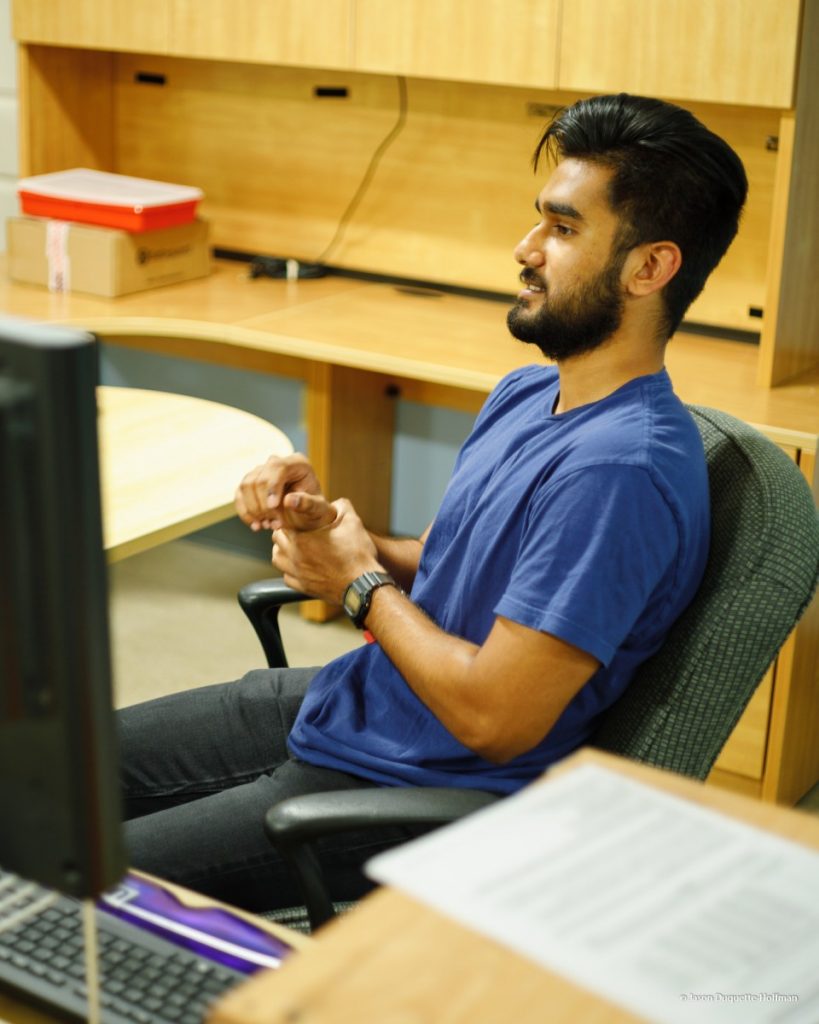P&P Intern Imran Ganda works to alleviate food insecurity this summer

If every food insecure child in Addison County tried to get a meal at the Grille, the line would fill up capacity at Middlebury college’s student restaurant, then spill out into the auditorium and occupy every seat. And that would only be half of the total amount of kids.
CCE interns are learning the far-reaching grasp poverty has on food insecurity this firsthand this summer. One of our P&P interns, Imran Ganda, is working at HOPE, one of the leading food access providers in Addison County. Hope, short for Helping Overcome Poverty’s Effects, runs a number of programs, from housing and heating assistance to a resale store and – of course – a really, really big food shelf.
“We consistently get folks coming up from Rutland,” says Lily Bradburn, HOPE’s local access food coordinator. “There really isn’t an equivalent surplus area anywhere else. Every day you can come here, and walk away with a bag of groceries.”
What’s the difference? HOPE is open Monday through Friday, an accessibility which is rare for a food shelf. But the quality of the food is a deal breaker.
“Once I sign up clients, they just get blown away by the food shelf in the back, the kind of variety there is,” says Imran, who helps every client who walks through HOPE’s doors get the specific help that they are looking for.
Once I sign up clients, they just get blown away by the food shelf in the back, the kind of variety there is.
HOPE doesn’t wait around for people to come to them, either. Its food access program delivers nutritious, fresh food to a variety of different places, like the Addison Central Teen Center, an afterschool and summer program for teens.
“It’s a program where we can have different levels of engagement with clients, volunteers, donors – it [has] really well balanced access points,” says Lily.
Interns with HOPE aren’t just learning about food, however. They’re also learning about a different work environment, and how to see Addison County in a different way.
When asked about takeaways from this summer, Imran replied “Learning how to work in an office culture, seeing how people interact across organizations at meetings, seeing our [Privilege & Poverty intern] discussions reflected in the work.”
But, perhaps more powerful than an understanding of offices and meetings, was the feeling of familiarity that developed around the work.

“These past three years I haven’t really been able to interact with regular locals in the area,” says Imran. “One of the biggest takeaways from this internship is the experience of feeling a little more normal again, of feeling like myself.”
One of the biggest takeaways from this internship is the experience of feeling a little more normal again, of feeling like myself.
It might only take a well-stocked food pantry to diminish that line of hungry children. But there is a common thread of a subtle intensity behind the people I talk to; a determination hidden behind friendly personalities.
Our interview, on early Friday morning, was one of the few things Lily could do that day, before she hit her 40 hour work week and had to go home.
“I’m bumping up on forty again,” she said, in a tone that felt more frustrated than grateful that the long week was coming to a close. It looks like she has found her familiarity in this work as well, and Addison County can only be the better off for it.